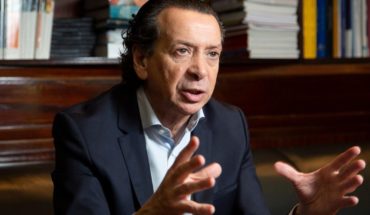
In 1971, two years after being elected president of the United States, Richard Nixon signed the so-called National Cancer Act, a law proposing to end cancer. Although the law in question did not contain it in its wording, the term “war on cancer” was widely used to refer to the federal plan of proceedings. Along with other measures, $1.5 billion was earmarked for the plan, and Nixon promised they would “defeat” it.
Other governments, including The Spanish, now declare “war” on another disease, the one caused by the SARS-CoV-2 coronavirus. In addition to measures in place to contain the expansion of the pandemic, the plans include scientific policy actions, with a significant injection of financial resources to investigate the coronavirus and possible treatments to “overcome” it.
Amid so much zozobra, pain and uncertainty as the pandemic is causing, rulers and expert opinionmakers seem to place their trust in science as a tool to solve the most formidable challenge facing generations. Because it seems to have overcome the idea that only knowledge will allow it to be overcome.
It is, however, appropriate to be cautious. Last Friday 27 the journal Science published an editorial in which it warned of the risk of too much being asked of science or that even the scientific community itself generated more expectations than it should. To this end, the publisher used the hiv case: it took decades of effort in virology, epidemiology and new drug development to start getting results. While it is true that AIDS has long become a chronic disease, only now, four decades later, some sick people are beginning to heal.
Something similar can be said of cancer research and its results. Today we know more about the processes involved in the different diseases that fall under this name, and since 1971 progress has been made in understanding issues such as risk factors, treatments and prognosis of some types. But many remain incurable and mortality has only been reduced slightly since then. Regaining the war metaphor, the cancer has not yet been “defeated.”
The counterexample of these “wars” is the Manhattan project – this yes, war – which came out with the production of the atomic bomb. The scientific community had sufficient knowledge about the structure of the atom and the nature of matter. And that allowed the Americans to have, in record time, the deadliest weapon mankind has ever created.
It is important, of course, that resources are allocated to research on coronavirus and epidemics in general. But the conclusion that can be drawn from the above must take us further.
We don’t know what the future holds. While it is true that some possible dangers are too likely to be ignored, others are also completely unpredictable, just as we do not know in what subjects or in which fields we will need to generate knowledge in the near future.
We also ignore fundamental aspects that underlie some of the problems of the present, as the history of cancer shows. Therefore, the most useful strategy is to increase and diversify the effort, sowing on different terrains, because we do not know today what we will need tomorrow.
It is important to treasure knowledge in different subjects because, the more we know, the better we will be to face the challenges that, in the form of pandemics or any other nature, await humanity.
Juan Ignacio Pérez Iglesias, Professor of Physiology, University of the Basque Country / Euskal Herriko Unibertsitatea
This article was originally published in The Conversation. Read the original.





